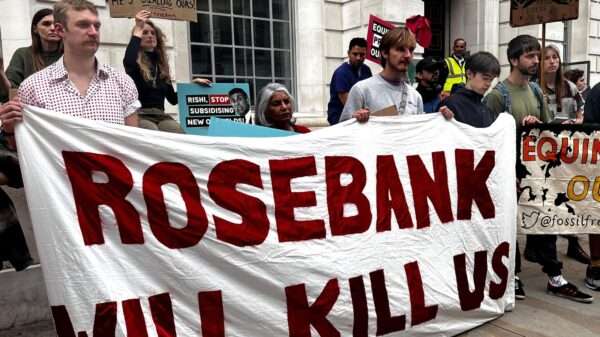Just Stop Oil activists have once again captured public attention, this time by targeting the iconic Stonehenge monument. On a day that was meant to be ordinary, the tranquil atmosphere of the prehistoric site was disrupted by the vivid sight of ‘orange powder paint’ being sprayed across the ancient stones. This act of defiance led to the immediate arrest of the involved activists, marking another chapter in the ongoing confrontation between environmental protesters and authorities.
The motivation behind this latest protest by Just Stop Oil is deeply rooted in their mission to halt the extraction and usage of fossil fuels. The group argues that radical actions are necessary to draw attention to the urgent need for climate action, particularly the cessation of oil production, which they view as a critical step in combating climate change. By choosing Stonehenge, a site recognized worldwide for its historical and cultural significance, the activists aimed to amplify their message on a global stage.
The response from the public and officials has been one of outrage and concern. English Heritage, the organization responsible for the management of Stonehenge, swiftly condemned the act, emphasizing the importance of preserving the site for future generations. They highlighted the potential damage to the stones, which have stood for millennia and are considered sacred by many. The act of defacing such an important monument has been widely criticized as counterproductive, overshadowing the activists’ environmental message with a wave of negative publicity.
The arrested activists are now facing legal consequences for their actions. Charges could include criminal damage, which carries significant penalties, especially given the value placed on heritage sites like Stonehenge. The legal proceedings will likely attract considerable media attention, providing a platform for Just Stop Oil to reiterate their message, albeit under the shadow of their controversial methods.
This incident has sparked a broader debate about the tactics used by environmental activists. While the urgency of the climate crisis is acknowledged by many, the means of protest remain contentious. Critics argue that actions like those at Stonehenge alienate potential allies and detract from the legitimacy of the environmental movement. Supporters, on the other hand, contend that such drastic measures are necessary to break through the apathy and inaction that have long plagued climate policy.
The vandalism at Stonehenge is part of a larger trend of direct action by environmental groups around the world. From blocking major roads and disrupting public events to targeting corporate headquarters, activists are increasingly turning to high-visibility protests to force a reckoning with climate issues. These actions are often polarizing, highlighting the delicate balance between raising awareness and maintaining public support.
In the wake of the Stonehenge incident, the conversation about environmental activism is likely to intensify. Authorities may impose stricter measures to protect cultural and historical sites, while activists might seek new, innovative ways to convey their message without alienating the public. What remains clear is that the climate crisis continues to inspire passionate responses, driving individuals to take extraordinary risks to demand change.
As the world grapples with the twin challenges of preserving its heritage and ensuring a sustainable future, the clash between environmental activists and the establishment is set to continue. The Just Stop Oil protest at Stonehenge is a stark reminder of the lengths to which activists will go to highlight the urgency of their cause, even as they navigate the complex terrain of public perception and legal repercussions.

















































